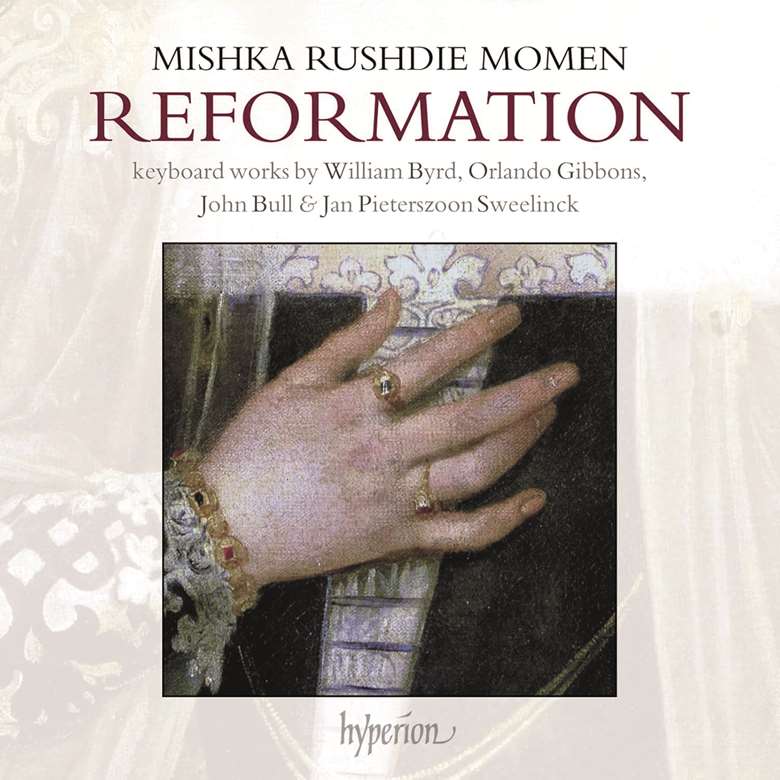Review - ‘Reformation’ (Mishka Rushdie Momen)
Bryce Morrison
Friday, August 30, 2024
Momen’s playing brims with zest, clarity and refinement

Mishka Rushdie Momen’s versatility, sensitivity and erudition make assessment of this enchanting recording an elusive challenge. First, and most importantly, there is her unalloyed joy in her task; there is nothing drily academic about her artistry, whether musical or verbal. There is always a telling delight in knowledge as well as in confirmation of her early awareness that music would be her life.
For Momen, London-born with Indian parentage, music is both natural and inborn, irrelevant of nationality or background. I am reminded of the empathy that the Chinese pianist Fou Ts’ong displayed in Chopin, which elicited surprise from some corners, and more recently and pertinently of another young pianist who excels in Elizabethan repertoire, Kit Armstrong, an American of Taiwanese heritage whose DG recording of Byrd and Bull, ‘The Visionaries of Piano Music’, was widely acclaimed in 2021.
In Momen’s hands – as in Armstrong’s – the music of Byrd, Bull and Orlando Gibbons offers a treasure trove of tireless relevance. The seeds of so much to come are unmistakably there. Momen’s choice of a modern piano is made because she relishes its expressive colour and range. Again, as with Armstrong, she shares a love of the past with a no less fervent sense of its prophecy and relevance. Once considered of limited and archaic interest, the worlds of William Byrd and John Bull display an abundance of sophistication, intellectual complexity and, above all, human warmth and beauty.
Everything on this album is of absorbing interest, while several pieces stand out for their exceptional range, freedom and complexity. Byrd’s Praeludium to the Fancie, for example, shows its ambition in a bewildering variety of rhythms and progressions. To call its shifts from inwardness to playfulness inventive would be to deal in understatement. Byrd’s elaboration of his material is as assured as it is seemingly limitless. For Momen, Gibbons’s Fantazia of foure parts is ‘one of the jewels of Renaissance keyboard polyphony’, an integration of at least seven themes or ideas. Then, returning to Byrd, there is The Bells, with its alternation of an insistent tolling and dance rhythm and its scintillating and virtuosic summation. John Bull’s Walsingham evokes the religious shrine, commencing with a theme of wavering tonality before blossoming into eight variations of increasing intricacy.
Returning to Armstrong’s recording, I have to say that ultimately he shows a higher degree of virtuosity and poetic intensity. His way of interleaving Byrd with Bull highlights their difference, and his dazzling dexterity and assurance in Bull’s Walsingham seems to anticipate the great sets of variations of Beethoven and Brahms. Yet Momen’s playing brims with zest, clarity and refinement, and I wouldn’t want to be without her recording or Armstrong’s – I urge you to hear both.
This article originally appeared in the Autumn 2024 issue of International Piano. Never miss an issue – subscribe today







